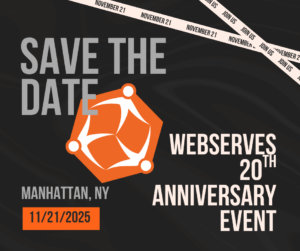Welcome to part 1 of the series of our AI Awareness Campaign. We’ll begin with updating you on what is currently going on in the industry, as well as to discuss and enlighten you about the future of AI throughout the series.
Artificial intelligence (AI) is no longer just a futuristic concept—it’s already a significant part of our daily lives. Whether you’re chatting with a virtual assistant, getting personalized Netflix recommendations, or even receiving medical insights from an AI-powered tool, this technology is everywhere. But AI isn’t just about convenience. It’s also revolutionizing industries in ways that could shape the future of healthcare, education, and even our legal system. Let’s look at where AI is currently making waves and where it might go next.
Where AI Is Thriving Now
Healthcare
AI transforms healthcare by helping doctors diagnose diseases faster, analyze medical images, and predict health risks.
Example: IBM Watson Health uses AI to analyze vast amounts of medical data and assist doctors in diagnosing diseases like cancer more accurately. AI-powered radiology tools, like those from Zebra Medical Vision, can detect tumors, fractures, and other conditions in medical scans earlier than human doctors.
In the future, AI could help personalize treatment plans, detect diseases before symptoms appear, and even assist in robotic surgeries.
Customer Service
Many businesses now use AI-driven chatbots and virtual assistants to answer customer questions, resolve issues, and provide recommendations.
Example: Companies like Amazon, Apple, and Google use AI assistants (Alexa, Siri, and Google Assistant) to help customers with everything from setting reminders to answering questions. Chatbots like OpenAI’s ChatGPT or Meta’s AI customer service bots are used by businesses to handle basic inquiries, saving time for human employees.
As AI improves, expect customer service interactions to become even faster and more human-like.
Finance
AI plays a crucial role in fraud detection, automated investing, and risk assessment, helping banks and individuals manage money more efficiently.
Example: AI-powered fraud detection systems, like those used by Mastercard and Visa, analyze transaction patterns to detect unusual activity in real time, preventing fraud before it happens. Meanwhile, robo-advisors like Betterment and Wealthfront use AI to manage investment portfolios based on a person’s financial goals.
In the future, AI could take on an even more significant role in financial planning, offering real-time spending advice based on income and goals.
Entertainment
Streaming services, gaming, and content creation are all being transformed by AI.
Example: Netflix and Spotify use AI to analyze viewing and listening habits, curating personalized recommendations. AI-generated content is also rising—OpenAI’s DALL·E creates AI-generated art, while deepfake technology is being explored for filmmaking. In gaming, AI-driven characters and storylines are making games more immersive, such as in The Last of Us Part II, where AI controls enemy behavior dynamically.
As AI advances, we can see hyper-personalized content tailored to individual tastes in real time.
Transportation
AI is making transportation more efficient and safer, from self-driving cars to ride-sharing apps.
Example: Tesla’s Autopilot system uses AI and machine learning to assist with driving, helping cars steer, change lanes, and park autonomously. Meanwhile, Uber and Lyft use AI to predict demand, adjust pricing, and optimize ride routes for efficiency. AI is also being used in air traffic control to reduce delays and improve safety.
In the future, AI could play a crucial role in making fully autonomous vehicles a reality and improving public transportation efficiency.
Retail & E-Commerce
AI is enhancing the way we shop online and in stores.
Example: Amazon’s recommendation engine suggests products based on browsing history and past purchases. AI-powered cashier-less stores, like Amazon Go, use cameras and sensors to track what customers pick up, allowing them to leave the store without waiting in a checkout line. Retailers also use AI for demand forecasting, ensuring products remain in stock while minimizing waste.
Looking ahead, AI-driven virtual shopping assistants could provide even more personalized shopping experiences.
Where AI Could Go Next
Education
AI-powered tutors and personalized learning programs are on the rise. These systems can analyze students’ strengths and weaknesses, providing customized lessons that adapt to their needs.
Legal System
AI is starting to assist in legal research, helping lawyers quickly find relevant cases and precedents. In the future, AI could streamline legal document reviews, predict case outcomes, and even support efforts to make the justice system more accessible to the public.
Environmental Protection
AI is being used to monitor deforestation, predict natural disasters, and optimize energy use. It can analyze satellite images to track climate change effects and help businesses reduce waste. In the future, AI could be a key player in conservation efforts, from protecting endangered species to developing smarter, more sustainable cities.
Mental Health Support
AI-powered chatbots and virtual therapists are already helping people manage stress and anxiety by offering guided self-help techniques. In the future, AI might play an even more significant role in detecting mental health issues early through voice and text analysis, providing real-time support before a crisis occurs.
AI in Space Exploration
NASA and other space agencies are already using AI for tasks like mapping distant planets and analyzing data from space probes. In the future, AI could control autonomous robots on Mars, helping scientists explore areas humans can’t reach. It could also assist in predicting space weather, optimizing satellite communications, and even planning missions to distant galaxies.
Conclusion
To conclude, artificial intelligence is no longer a distant concept; it’s a powerful force shaping industries and everyday life. From healthcare to finance, entertainment to transportation, AI’s impact is already substantial, driving innovation, improving efficiency, and enhancing user experiences. As AI technology continues to evolve, we can expect even more transformative changes across education, environmental protection, mental health support, and space exploration.
The rapid growth of AI presents both incredible opportunities and new challenges. While it offers the potential to improve lives and solve complex problems, we must also ensure responsible development and ethical usage to avoid potential risks.
Throughout this AI Awareness Campaign, we aim to keep you informed about these advancements and provide insights into how this technology will shape our world. Stay tuned for the next installment, where we’ll dive deeper into the ethical considerations and societal impact of artificial intelligence. Together, we can better understand and prepare for the AI-driven future.




